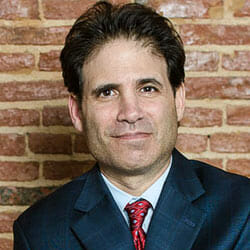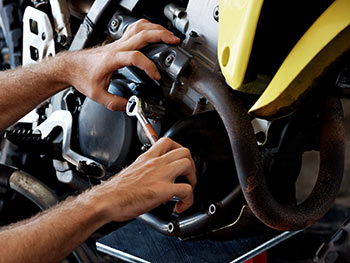The Bad Part(s) of Motorcycling
If you own a motorcycle, you are likely all too aware of the many ways you can wipe out. Often the accident is caused by something that’s not under your control, such as a car turning left in front of you, or loose gravel on a blind curve. But, defective bike parts? I’ll bet you didn’t realize that “bad parts” can cause accidents, too. And, if your bike has a defective part and you are injured in an accident, the event can trigger a defective products claim.
When an accident occurs, those who drive cars have some protection from the metal and frame that surround them. Those who ride motorcycles, however, have no such protection—any accident or loss of control has the strong potential to become catastrophic. Therefore, it is in your best interests to understand what the risks are when it comes to defective parts.
How Does Anyone Know If a Part Is Defective?
Experts contend that three ways exist to determine whether a part is functioning correctly:
- The part was manufactured improperly, such as with faulty tires that blow out, or brakes which don’t stop the motorcycle.
- The part’s fundamental design is defective. When design is flawed, usually the manufacturer will issue a recall. Fixing the defect sometimes means adding something that makes the part safe, rather than replacing the part. If the design is at fault, sometimes the designer can be held liable for damages.
- The manufacturer knew there was a problem, but issued no warning. An example is when a bike part becomes hot enough to cause a serious burn, but issues no notifications regarding the obvious danger. If you were not officially warned, the part is considered defective.
Once a Part Is Determined to Be Defective
When a vehicle’s part (either automobile or motorcycle) is determined to be a safety hazard, the National Highway Transportation Safety Administration (NHTSA) requires the manufacturer to issue a report describing:
- What the safety-related defect is
- The make, model, and year of the vehicle
- Events that led to deciding a recall is necessary
- What the manufacturer intends to do to fix the defect
- The recall schedule.
Even if you don’t receive an official recall notice, the manufacturer is required by federal law to correct any safety-related defect at no charge to you.
Aftermarket Purchases? Consider the Risks.
Sometimes problems arise from products sold in the aftermarket, which is simply the market for spare parts and accessories. If you’ve thought of modifying your bike with aftermarket products, you might want to proceed cautiously. Some commonly-sold items that are hazardous are not covered by federal safety standards.
It is the NHTSA which has the legal right to pursue civil penalties against aftermarket parts companies selling products not in compliance with regulations. However, some safety experts think that civil penalties are insufficient and that the NHTSA does not have enough resources to adequately monitor aftermarket parts companies.
The Stakes are Darned High
The failure of a part can cause accidents, or injuries to the driver or passenger, that would not have occurred, nor been as serious, if the part had been operating properly. Did you know that a motorcyclist is almost 26 times more likely to die in an accident than someone in a car? In 2013 alone, according to the NHTSA, 4,668 motorcyclists died. Another 88,000 were injured in accidents during just that one year. Those are not statistics that any of us want to contemplate.
Be smart and be safe. Should you receive a recall notice, we at The Law Offices of Steven H. Heisler hope you will take your bike in to be repaired promptly. We also hope that you will be cautious regarding any aftermarket parts you might consider purchasing, especially accessories that might render your motorcycle hazardous. We want you to arrive alive!
Do you need a lawyer to help with your motorcycle accident case?
If a faulty part caused your motorcycle accident, it’s possible you could bring a personal injury claim against the designer, manufacturer, supplier, or distributor of the part. Depending upon the circumstances, you might even have cause for a class action suit, such as with a 2010 case involving defective piston rings. Not even the most careful and alert of motorcyclists can prevent an accident arising from a parts failure or flaw. Because of this fact, it may benefit you to consult with an attorney.
The financial strain of a motorcycle crash, as well as the emotional and physical effects, can feel overwhelming, but a skilled motorcycle injury attorney can help you begin the process of recovery. If you suspect defective parts are the reason for your injuries, you can find out more by discussing whether you have a case with Baltimore personal injury attorney Steve Heisler. With over 25 years of experience helping thousands of injured people, Steve can provide the approachable and professional guidance you need to recover financial reimbursement for your losses. If you or a family member has been the victim of a personal injury in Maryland or the District of Columbia, you should keep in mind that there is a statute of limitations – or a time limit – for filing personal injury claims, so please don’t delay. Contact “The Injury Lawyer,” Steven Heisler, for a free initial consultation by calling (410) 625-4878 today, or by using our online contact form.

Attorney Steve Heisler
Steve Heisler decided in 1996 that he was going to focus his law practice exclusively on injury cases. Since then, he has been representing injured people against insurance companies, disreputable medical practitioners and Big Pharma, and doing it with compassion, honesty and level-headed rationality. [ Attorney Bio ]



